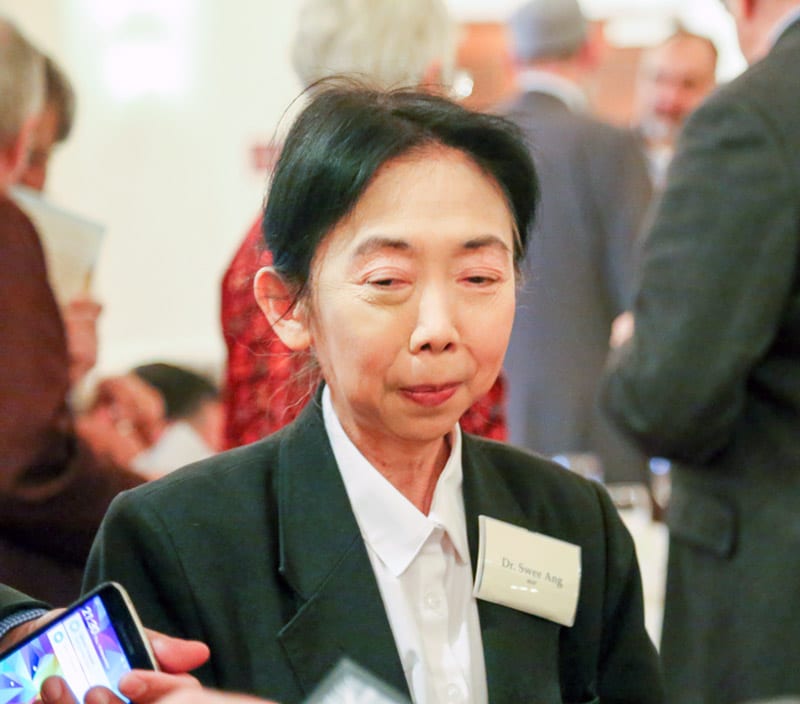I have just returned from a visit to Lebanon and the situation there is miserable for Palestinian refugees. Even in the immediate aftermath of the Sabra and Shatilla Massacre in 1982, no Palestinian wanted to leave their host country. During this visit, though, I saw that Palestinians were demonstrating outside the Canadian Embassy demanding that they should be allowed to go to Canada. Moreover, the Lebanese Government is openly encouraging human traffickers to get Palestinians out of Lebanon.
Draconian labour laws and the government’s demand that refugees must have an annual residence permit costing $200 means that many Palestinians are unable to leave their refugee camps, never mind the country itself, as their presence in Lebanon beyond the camp boundaries has basically become illegal. Failure to produce a paid-up residence permit on demand by the authorities and police will lead to them being jailed.
Officially, there are 450,000 Palestinian refugees in Lebanon registered with the UN Relief and Works Agency (UNRWA), but only 175,000 have valid Lebanese residence permits issued by the Ministry of the Interior. This apparent reduction of refugee numbers makes Israel very happy in what has become a numbers game. Officially, however, the Lebanese government acknowledges the presence of 500,000 Palestinian refugees: 450,000 with UNRWA and 50,000 with no papers. Those registered with the UN Agency cling on to their refugee status as it identifies them as Palestinians. The Lebanese government sticks to the figure of 500,000 because in the eventuality that the refugees are able to return to their homeland across the border, Lebanon will want to claim compensation for hosting them. That is why even non-UNRWA Palestinian refugees are included in that particular statistic.
READ: The Palestinian refugees in Lebanon and the right to work
Unemployment among Palestinian refugees in Lebanon runs at more than 60 per cent, and 72 professions are denied to them beyond the confines of the camps. The infrastructure and facilities in all of these camps have deteriorated in every way. The old people are dying and the young are too pressurised by existential threats to want to remember. They just want to leave because they are unable to take it any longer. This, of course, is exactly what Israel wants to see; Palestinians who no longer see any hope of ever exercising their legitimate right to return to their homeland.
At the time of the Sabra and Shatila Massacre, I was working in the Gaza Hospital overlooking the area. Sadly, the hospital is no longer operational, and is filled with dispossessed families eking out a miserable existence as best they can. Inside, its walls and ceilings are damaged by leaking water and sewage; the ghosts of the past haunt the barely-living ghosts of the present, while the young cry out to ask where humanity is in all of this. Their voices are hoarse and their tears have run dry.
This year, there were more than eighty foreign delegates at the commemoration of the 37th anniversary of the massacre. We wanted to make it known to the Palestinians in Lebanon that they will not be forgotten. They returned our solidarity with overwhelming love and generosity and gave to us what they could ill afford in terms of food and gifts.
Upon my return to London I found out that one of my scheduled talks at a prestigious secondary school had been cancelled by the Principal after the school was sent malicious emails about me. As if accusations that I am “anti-Semitic” for standing up for Palestinian rights are not enough for the anti-Palestine Lobby, I now stand accused of being a “white supremacist” and sympathiser of the Ku Klux Klan. I kid you not. The girls at the said school were extremely upset because they had worked hard to put the talk on.
READ: Palestine refugees protest against discrimination in Lebanon
The next talk I am due to give has seen the local Labour MP pull out under pressure from the anti-Palestine Lobby. Fortunately, the event itself will still take place.
Despite all of these challenges and personal insults — the anti-Palestine activists can’t tackle the subject objectively because of their lies and misinformation, so they resort to “shooting the messenger” — the voices of the Palestinians must be heard. Those of us who care about justice and the rule of law have an obligation to make sure that we speak out on their behalf for as long as is necessary. As far as I am concerned, there is no other option.
The views expressed in this article belong to the author and do not necessarily reflect the editorial policy of Middle East Monitor.

![A Syrian child is seen at a refugee camp in Beirut, Lebanon on 8 March 2013 [Rime Allaf/Twitter]](https://i0.wp.com/www.middleeastmonitor.com/wp-content/uploads/2018/11/2013_1-8-syria-refugee-camp-in-LebanonBAHlyFrCYAElawY.jpg?fit=920%2C613&ssl=1)







